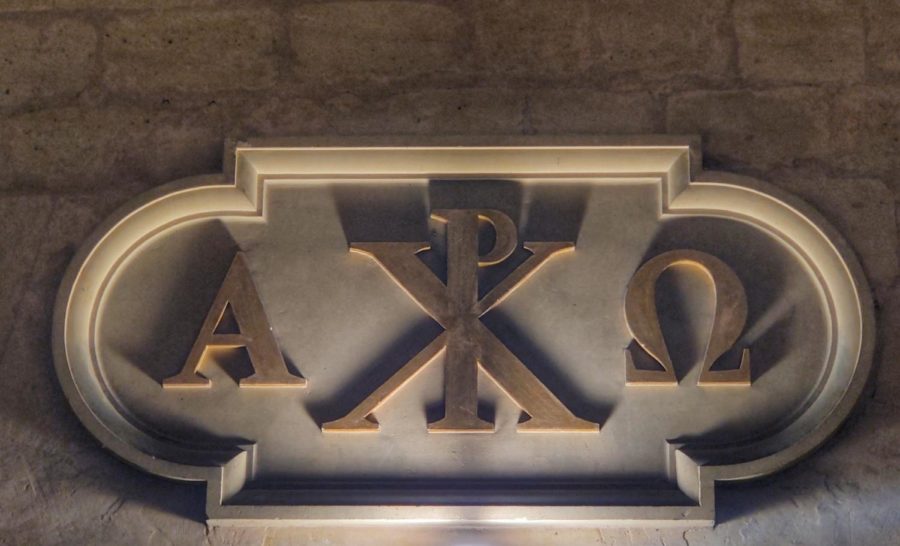No more rush: Greek life recruitment week undergoes name change
The National Panhellenic Conference addresses the stigma surrounding hazing within the Greek community.
Sororities across the United States and Canada altered some of their terminologies in an effort to reduce the stigma around hazing within the Greek community.
The National Panhellenic Conference announced that the infamous “rush week” is now to be known as “primary recruitment.” In addition, incoming recruits, formerly known as pledges, are to be referred to as “new members.”
The Panhellenic Conference, the umbrella organization for sororities, hopes these changes will make a difference in people’s preconceived notions about Greek life and the recruitment process.
A driving force behind the new terminology comes as a form of reassurance for incoming students planning to enter recruitment. Radhika Sharma, sophomore studying psychology and a member of Chi Omega, experienced this hesitation herself when deciding to enter recruitment at Iowa State.
“I was nervous that sororities were all about parties and drinking and were ditzy gals who weren’t into school,” Sharma said.
Jordan Hanauska, a junior at the University of Minnesota, had similar preconceptions before joining Pi Beta Phi her freshman year.
“I had heard all of the rumors about what goes on in these sororities, and it actually really scared me,” Hanauska said.
These assumptions, often formed from people’s stories, are a strong deterrent for students when they consider joining a sorority or fraternity.
“None of these assumptions are true,” Sharma said. “Sororities are so much more than that. They are about academics, philanthropy [and] helping out the community and campus in any way we can.”
The National Panhellenic Community values relationships built on transparency, accountability and mutual respect, according to their website. Their values statement also emphasizes friendship, leadership, service, knowledge, integrity and community.
Many question if these values are upheld within the Greek community, but several students vouch that these are the true intentions of their organizations.
“I want people to know that Greek life isn’t just about partying and doing bad things,” John Senden, a junior studying marketing and a member of Phi Kappa Psi, said. “My fraternity alone averages 27 service hours per person out of a chapter of 132 people, and we also hold an average GPA of 3.4.”
The National Panhellenic Community only oversees sororities, but the North American Interfraternity Conference, the umbrella organization for fraternities, is beginning to take a similar approach.
Fraternity members were told to avoid the word “pledge,” Senden said.
The variation in strictness seems to vary by chapter and university, but many assume this will become the standard across the U.S. Greek community.
This is not the first time changes in terminology have been used as a strategy to combat negative connotations at Iowa State. The school changed the infamous “801 Day” to a formal “Cyclone Welcome Weekend” to deter students from participating in an unofficial holiday consisting of drunk college students lining the streets of Ames.
The university also changed the terminology for the last full week of classes before final exams. What once was known as “dead week” is now referred to as “prep week,” eliminating negative connotations surrounding the phrase.
Many staff and faculty members utilize the new terminology associated with these dates, but several students still use “801 Day” and “dead week” in daily conversations. The Greek community may face a similar issue.
“I think it’s definitely going to take some time for people to get used to,” Hanauska said. “Using those words still comes out of instinct for me.”
Many hope the change in terminology can make a difference going forward and eliminate the negative connotations surrounding fraternities and sororities.
“I think it’s a great change,” Sharma said. “When we hear these terms, we often think of fraternities and movie scenes of rushing, pledging and all the stereotypes surrounding it. I think this will make a difference in convincing people to give recruitment and Greek life a try.”
Your donation will support the student journalists of the Iowa State Daily. Your contribution will allow us to purchase equipment, send our student journalists to conferences and off-set their cost of living so they can continue to do best-in-the-nation work at the Iowa State Daily.










